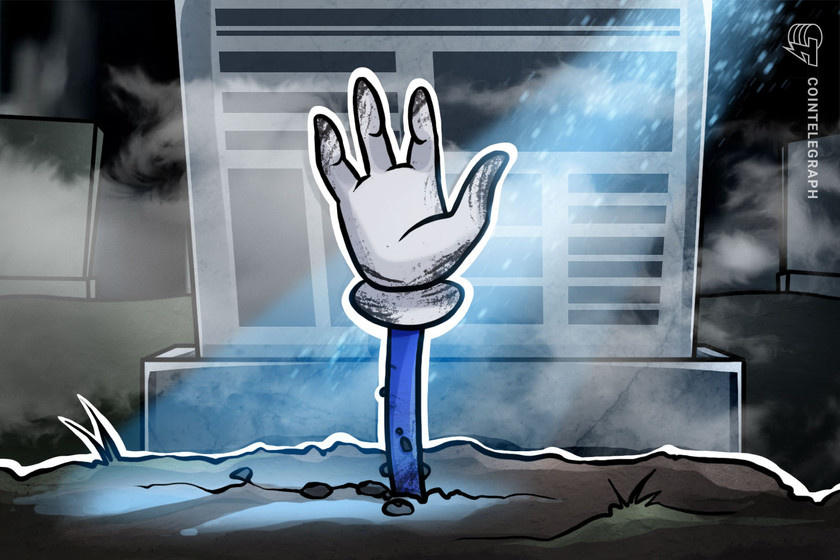Bitcoin price slides 5% after failing to break $60K — Here’s why
The price of Bitcoin (BTC) dipped below $56,000 on March 21 after repeated rejections by the $60,000 resistance level throughout the past four days.

Despite getting closer to cleanly breaching past the key technical level, Bitcoin has been showing weakness in the $59,000 to $60,500 range.
There are three major reasons behind the stagnation: the rise in Treasury yields, bearish movements on Bitfinex, and the struggle of the risk-on market.
High U.S. Treasury yields cause risk-on markets to slump
When the 10-year U.S. Treasury yield rises, the appetite for risk-on assets tends to drop because investors can seek safer yield-generating alternative in Treasury bonds.
Although Bitcoin has not seen tight correlation with the Dow Jones, it has seen close correlation with tech-heavy indices, like the S&P 500.
This suggests that the strong momentum of the U.S. Treasury bonds is leading risk-on assets to stagnate, bringing down Bitcoin’s momentum in tandem, as Cointelegraph previously reported.
The U.S. Treasury yields began to break out above key levels starting March 19. Since then, Bitcoin has been consolidating, struggling to rise above $60,000.
Holger Zschaepitz, a market analyst at Welt, said:
“Treasury yields breached more key levels as bond traders boosted bets that the Fed will allow inflation to overshoot as US economy recovers. 10y yields top 1.75% w/ING sees ‘no real barrier’ for move higher.”

For Bitcoin to see a sustainable rally, it needs to see a favorable macro landscape, which would only be possible through the stabilization of U.S.Treasury yields.
Selling pressure on Bitfinex at $60K resistance
According to a pseudonymous Bitcoin trader and technical analyst known as “Byzantine General,” there has been serious selling pressure on Bitfinex.
Other derivatives trading platforms, like Deribit, FTX, and BitMEX also saw decent short interest, the trader said.
He wrote:
“Yeah… Fuckery still not over. Bitfinex still unloading. There was serious short interest on Deribit, Mex & FTX. OI is finally unwinding though.”

The combination of an unfavorable macro landscape and the selling pressure from both whales and derivatives traders likely caused Bitcoin to consolidate under $60,000.
However, in the foreseeable future, the likelihood of a relief rally could increase if the open interest of the futures market continues to unwind.
The term open interest refers to the total sum of active positions in the futures market. When this declines, it means that there is generally lower trading activity concerning derivatives.
There is one positive catalyst
Willy Woo, the prominent on-chain analyst, explained that Bitcoin has a decent chance of not going under $1 trillion market capitalization again.
Woo noted that the UTXO Realized Price Distribution (URPD) indicator, which shows the realized price of all UTXOs on any given day, indicates that the $1 trillion market cap is acting as a price floor. He said:
“URPD: ‘7.3% of bitcoins last moved at prices above $1T.’ This is pretty solid price validation; $1T is already strongly supported by investors. I’d say there’s a fair chance we’ll never see Bitcoin below $1T again. It’s only been 3 months since Bitcoin broke the $19.7k all-time-high of the last macro cycle. But already 28.7% of bitcoins moved at prices above $19.7k.”

The on-chain data also indicates that while there has been short-term selling pressure, these moves are not large enough to suggest that the market is anticipating a prolonged correction.









